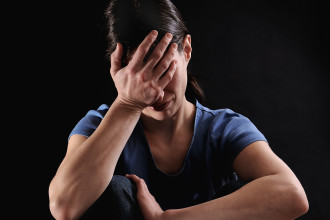 |
| Therapy For Chronic Pain |
Although the cause of chronic pain is usually difficult to pinpoint, most pain experts believe that it is caused by damaged and inflamed nerves, muscles and blood vessels – and it is very real. The body becomes locked into a vicious cycle. You naturally limit movement in the painful area, and this causes you to lose strength and flexibility. If you try to ignore the pain and increase your activity, the pain becomes so severe that you again become inactive. Sometimes you unconsciously guard against the pain and this leads to muscle tension and spasms. Your body becomes weak and deconditioned, and you begin to feel frustrated, angry, and depressed. Your friends and family do not understand the pain and may underestimate its impact on your life. This leads to more anger and depression.
Sometimes, though, it may overindulge you, and this can make you feel more dependent and out of control of your own life. These negative emotions can actually perpetuate pain. The more negativity we feel, the greater our pain – and the greater our pain, the more negative emotions we experience. This negative spiral, though, can be broken. We are sometimes told that we will just have to live with our pain after all else has failed, but we are far from doomed at this point. The realization that nothing else medically can be done can actually force us to examine the way we have lived and what brought us to the point where pain can play such a dominant role in our lives. In fact, this may just be the thing that it takes to turn one’s life around in a very positive and meaningful way.
You are invited to explore the many alternative ways of dealing with pain that therapy has to offer. Please visit our site at DrQuintal.com or call us at 941-907-0525 for a free phone consultation.
You can also receive more information by following us on Twitter and Facebook.
No comments:
Post a Comment